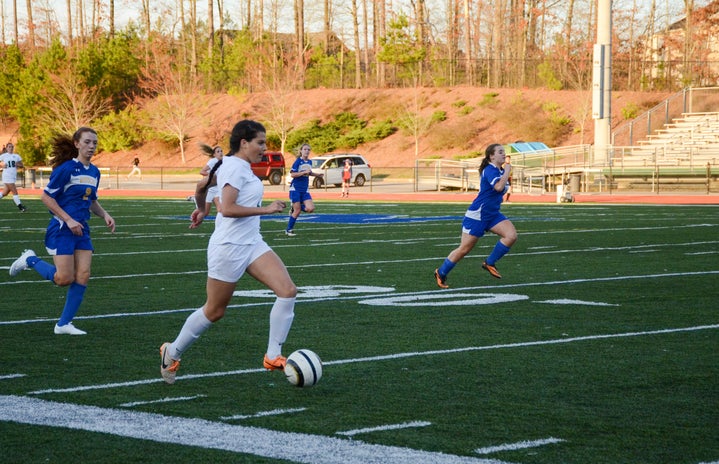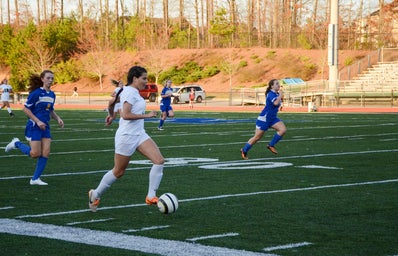Despite Title IX, women have struggled to be completely equal to men in sports. They face many challenges and inequalities to this day, that should be changed. Since women have fought for equality for centuries, it is horrific that they still are not equal to men. Despite their accomplishments and evident skill in sports, these players even are faced with abundant inequality based on their gender. Unfortunately, they are hardly the only players who will meet or have this treatment.
One of the biggest reasons why Title IX and male-dominated sports mistreat women is the wage gap. For example, the US women’s soccer team was awarded $2 million for winning the World Cup. Every men’s team was awarded 1.5 million, just for playing. With this, each male team that lost in the first round was awarded 8 million. Since our team did win the cup, the 2015 competitors in the World Cup across all groups were paid 40 times less than their male counterparts in 2014. This means that it is a cumulative 15 million for women’s teams and 576 million for men’s teams. FIFA, recently, awarded the United States women’s soccer teams with 2 million prizes for their World Cup, even though the final 16 men’s national teams played in 2014 took home 10 million on average. In that same year, since Germany was the winning team, they took home 35 million. This wage gap connects to everyday life because the wage gap that has persisted in America is disgusting. American women earn an average of $.78 for every dollar a full meal worker earns, and this gap widens for women of color.
Another significant difficulty that women teams face is that they are expected to play under different conditions. In the coming years, FIFA decided that the women’s World Cup should be performed on artificial turf. Players had argued that not only was the experience of playing on actual turf inadequate but that they experience physical injuries like burns. With these injuries, several players filed suit, claiming that the decision was born for just crimination against the genders since players for the men’s tournaments would not be forced to play on artificial turf but real grass.
Also, women in sports are still seen as primarily valuable as caregivers. Though a lot of women games are accessible, these athletes should be more celebrated for their skills. Instead of doing that, the male-dominated world makes the stereotypes a reality since many major male-dominated sports industries feel the need to remind their fans of the team members’ supposed “real place”, which is in the home and with their families.
The darkest part of women in sports is the fact that they have been sexualized and objectified in any game. Websites like The Athletic Build, Men’s Fitness, and The Richest as well as other male-dominated and targeted magazines and websites, have created in tasteless lists ranking the comparative sexiness of female athletes overall. This media coverage of female athletes often revolves around their bodies over their skills. The general public still fails to see female athletes as athletes, not sexualized objects.
Alongside receiving corrupt media, women in sports have dealt with inadequate media representation across all boards. This is because 40% of all sports participants or females, yet women’s sports receive only 4% of sports media coverage. The sports media conglomerate, ESPN SportsCenter, has devoted less than 1% off on air time to women sports in the past years, excluding slight gains during 2014, 2016, and 2018 Olympics. With this, sports journalism does not just fail to cover women but to integrate them into the industry themselves. Over the past few years, women have only composed 10% of sports journalists.
On the bright side, the women’s World Cup, the most-watched soccer game ever in the United States, proves that covering women sports paid off for media powerhouses. In hopes that this treatment will finally put a nail in the coffin of sexist sports coverage, women should be taken more seriously in the sports industry because they have the same skills as men and should be treated like it.



